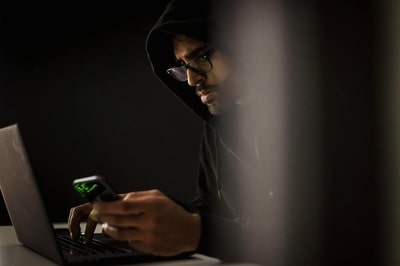It turns out you're trying to reach your spouse or children, but they don't answer and disappear completely. You palpitate as a bad feeling comes over you. That's when you remember to download a spying application for your husband's Android phone and your son's iPhone mobile. The spying application shows that the former is out shopping and the latter is still at school. You're reassured, but what you've just done is strictly forbidden and punishable by law. Don't be afraid of what might happen to your family; trust them, or use a free and/or legal geolocation application with their consent.
What is phone spying?
Phone spying is the practice of remotely monitoring the activities of a cell phone without the user's consent. This can include collecting information such as text messages, phone calls, Internet browsing history, geographical location, and even access to media stored on the device. This practice can be motivated by a variety of reasons, such as parental surveillance, verifying marital loyalty, or monitoring employees in a professional environment. On the other hand, spying has consequences, even if spying on someone with their phone number for free seems to be the best solution at the moment.
How do spying applications work?
Spying applications are usually installed discreetly on the target phone. There is free spying for phones, whether Android or iOS devices, but it must be installed in advance and is usually done with the consent of the individual in question. Spying applications work by discretely collecting data from the device and sending it to a remote server accessible to the user who installed the app. These applications are often designed to be undetectable, which means they can run in the background without the target phone user being aware of it.
The risks of phone spying
Phone spying, such as the use of an Android spying app or an iPhone spying app, presents serious risks to the privacy and security of the individuals involved. As well as violating the privacy of those being monitored, it can also lead to interpersonal conflicts, breaches of trust, and serious legal consequences. In many countries, installing spying applications on a phone without the user's consent is illegal and can lead to prosecution, fines, and even imprisonment.
What are some examples of spying applications?
Spying applications are available on the market with a variety of features and levels of sophistication. They are often marketed under the guise of parental phone monitoring, child safety, or employee tracking, but can be abused to spy on spouses without their consent.
Main spying applications
There are a large number of spying applications available on the market, but the majority of them are of dubious quality and may pose legal problems. Furthermore, it's essential to stress that we can't promote these different applications here. However, spying applications such as Geoloc.be enable location tracking with the consent of the person being monitored. These applications can be a good alternative to other dubious and illegal applications. Spying on a cell phone or even a smartphone is easy with Geoloc.be; you just have to follow the steps presented.
Risks associated with spying applications
Despite their apparent usefulness, the use of these applications entails serious risks for the privacy and security of the individuals being monitored. In addition to the legal consequences, installing spying applications can lead to privacy violations, relationship conflicts, and trust issues. That's why it's advisable not to use them, even if you're planning to spy on an iPhone or an Android phone.
Can I use spying applications legally?
Yes, it is possible to spy on a phone. However, the legality of this action strongly depends on the context and your country.
Legality of spying applications
As a general rule, the use of spying applications without the explicit consent of the person being monitored is considered illegal in many countries. However, there are specific cases where legal surveillance may be authorized, such as parental surveillance to protect minor children or employee surveillance in a professional context, subject to compliance with current geolocation laws and regulations. In France, in particular, spying on and monitoring a phone without the owner's consent is illegal and may lead to severe legal consequences.
Legal and ethical risks
It is essential for users to understand the legal and ethical implications of using spying applications. In addition to the risk of legal action, unauthorized spying can cause significant damage to personal and professional relationships, as well as to trust and privacy. It is therefore crucial to comply with local laws and to consult a legal advisor if necessary.
Final thoughts on the use of spying applications
In conclusion, the use of spying applications presents considerable risks to privacy, security, and legal compliance. Installing a bug on an iPhone is just as forbidden as iPhone spying or Xiaomi spying, for instance. Spying on an Android using such applications is strongly contraindicated. If you're looking to spy on a phone for free, you can use geolocation applications from Google or the Apple Cloud.
Nevertheless, it's essential for individuals to exercise caution and comply with laws and ethical standards when considering the use of such applications. Only legal and ethical surveillance practices should be considered, and it is advisable to consult a legal advisor before undertaking any surveillance action using these tools. Individuals should also be aware of the potential privacy and security risks associated with the use of such applications and take steps to protect their personal information and privacy.


